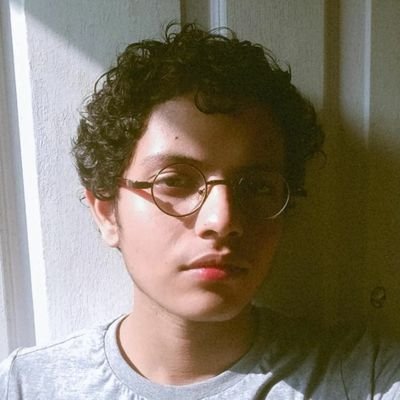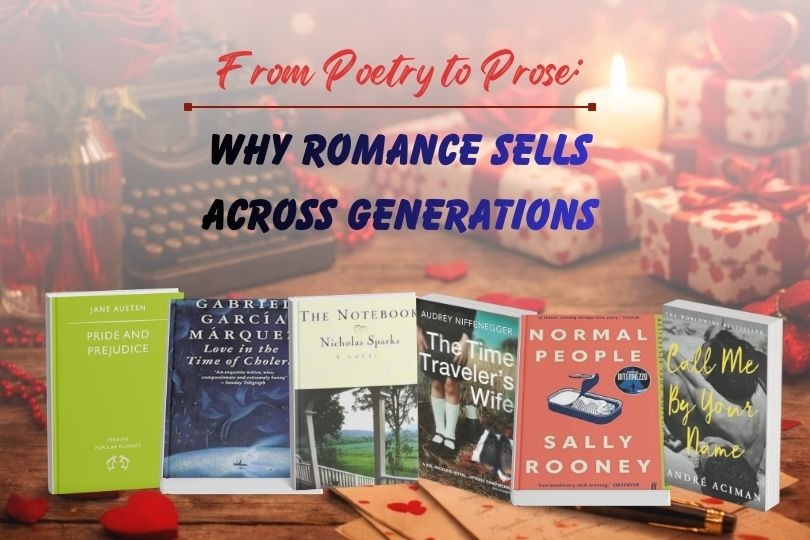Interview with Nimai Verma, Author of 'From Wulf to Woolf'
on Mar 26, 2022

Silver Medalist in Dr Sayan Chattopadhyay’s discourse on Literary Theory and Criticism, Nimai Verma has found solace in tales since the foremost days of his consciousness and has been critically reading literature since Middle School. Claiming to have inherited this admiration for arts from his mother he deliberately aims to work for the appreciation of arts centred on Philology and literary criticism. Intrigued by politics and the writings of Oscar Wilde and J.R.R. Tolkien, the author believes in the poet’s self-contained ability to create sublime, “l’art pour l’art”. Deliberately aims to work on Classical Literary Antiquity and South Asian Literature.
1.What is the idea behind choosing your book title “From Wulf To Woolf”?
The title simply justifies the timeline covered in the book itself. Long story short, it elaborates to "From Beowulf to Virginia Woolf". Now, Beowulf is known to be the oldest British literary relic and one of the foremost productions in the Old English period roughly stretching from Julius Caesar to the Battle of Hastings. Obviously, Virginia Woolf needs no description, as her works like "A Room of One's Own" have changed the course of history. To conclude, the book covers political and literary history from the times of the Anglo Saxon Chronicle to the late twentieth century. Language is meaning and history, sedimented layer upon layer, and a word without a meaning, is merely a sound, the book intends to provide this interpretation to its readers.
2. You are just 16 years old yet you have written a whole book on British Literature which is absolutely impressive. We would like to ask What inspired you?
Tradition, is one of the pillars to rule them all. My mother has been a scholar herself, and somehow it was passed unto me. Passion alone remains the reason for the completion of the manuscript, and I desperately hope that a day must dawn when age would only be asked for medical purposes. Agreeing with Longinus's Peri Hypsos and a dozen other defenders of Arts, I believe that an understanding of literature is a privilege and cannot be motivated by means of teaching or inspiration. The Greeks talk of the Muses and I dare not disagree with them.
3.Where did you get all the information on British literature as the books themselves have limited content?
The location of the scholar and the location of his subjects have always been in a direct relationship. I have mostly studied British authors refraining to touch on Asians for a single distraction from the sense of nationalism could disrupt the uniqueness of the chronology I have prepared. Books have an unlimited abundance of content, you just need to read a good amount of them.
4.How does literary criticism differ from opinion? Don’t you think the work of literary criticism makes it biased sometimes?
Criticism in the field of humanities means something different than the usual meaning. The purpose of Criticism is to study, evaluate, analyse, while you can have an opinion without any groundwork based on maybe prejudices. Criticism tends to suggest changes while the opinion doesn't. Criticism is academic, while an opinion is an informal set of thoughts, which with an appropriate sense of academic writing could be turned into criticism. I have opinions on Plato, on Art, on politics, but they definitely need a procedure to become criticism.
5. You have written a book on British Literature, when are you planning on writing about Indian Literature?
Studying British Literature before graduating school was an intended effort for I desire to study there. Europe has always fascinated me, and eventually, from the Celts, I'll move to the Romans and Greeks. Hopefully, when I am done with the Philologically centred study of Tolkien and critique of Plato, I will touch upon the Postcolonial literature of Bengal and a comparative study on Vedic literature but it is at least not happening for the next decade.
6.“Language was developed for one endeavor, and that is… to woo women.” Your book was all about British Literature but the quote on the first page of your book is quite unlike. Please elaborate on this?
The quotation is taken from my all-time favourite movie, The Dead Poets Society, and surely the book is on literature, but as I discussed earlier, a sound with a meaning is a language, and aesthetic use of language is literature. They are in a symbiotic relationship, if a language doesn't create literature, for mere admiration, it might die, and in turn, literature cannot exist without a language. Be it oral literature, drama, poetry, prose fiction, even inscriptions had a determined set of a pre-defined framework of rules within its very own structure. And to woo women centralises on the purpose of literature which is to bring harmony, peace and civilization to society.
7. Among all the eras, which is your most favourite poet? Do you also fancy writing poetry?
All poetry by me remains private as of now, would not deny that I write, especially when I travel. Talking of a favourite poet, I must clarify, a poem to me need not contain rhyme or meter, but intelligent use of literary metaphors, be it in a piece of prose or in a strict sonnet, speaking of which Shakespeare's Sonnets, Milton's devotion and Byron's love for tradition have something of the divine in them.

.jpg)
.jpg)
.jpg)
.jpg)
.jpg)

.jpg)
.jpg)
.jpg)
.jpg)
.jpg)


_(1).jpg)
.jpg)











Sorry! No comment found for this post.